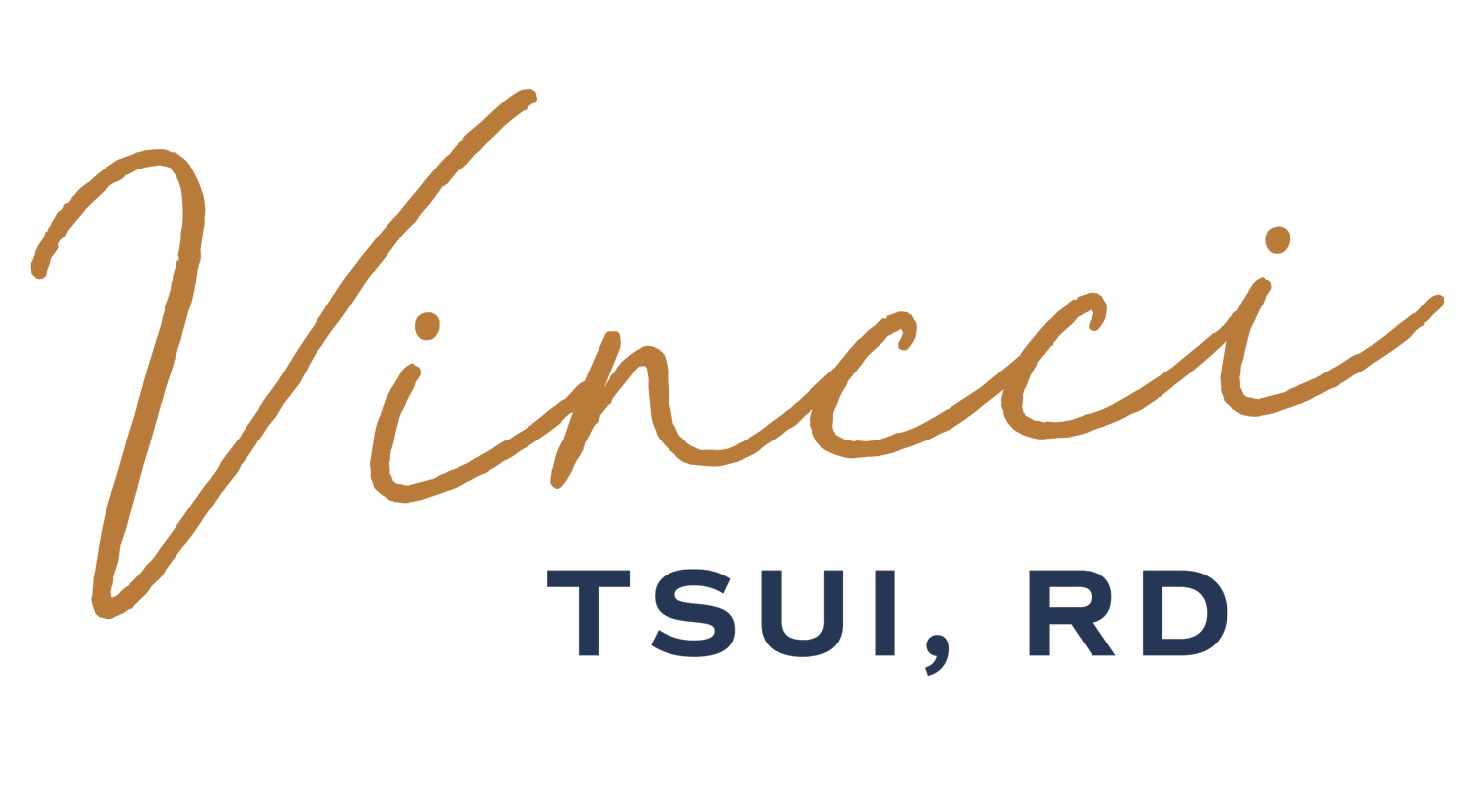Is Intuitive Eating Only for “Healthy” People?
A few weeks ago, I went through a stretch of writer’s block and asked you for suggestions on what you’d like to read about. (Thank you to everyone who shared, and if you haven’t yet, I’m always open to more ideas!) One of the common themes that came up was navigating intuitive eating while managing health concerns. Although the ideal is to work with a certified intuitive eating counselor or Health At Every Size® expert like myself, I understand that that is not accessible to everyone. So for the month of July, my plan is to write a few posts addressing this topic, and I wanted to kick things off by addressing what this question sort of says about how we promote and understand intuitive eating.
Intuitive Eating is for Everyone… Or Is It?
As a certified intuitive eating counselor, my first reaction is to say that intuitive eating is for everyone. There is the common narrative that we are all born intuitive eaters—when you watch a breastfeeding baby, they cry as a way to signal that they’re hungry, and will instinctively turn away from the breast when they’re full. They don’t worry about portion control, having to “clean their plate”, or not eating after 7 PM (though some mamas probably wish they did!)
We are told that intuitive eating is really “returning to” something that we instinctively know, not learning something that’s completely brand new. But is it really that simple?
As adults, we are not only relying on breastmilk. Instead, we eat a variety of foods in a single meal, let alone in a day, each with their own flavour, texture, nutrient makeup, function (physically, mentally and socially) and so on. On top of that, we’ve had a lifetime of exposure to messages from family, friends, coworkers, acquaintances, media and authority figures about food, eating, health and weight, in addition to forming our own opinions about these topics. Broader factors, like finances, education, culture and food environment, also impact our food choices. In fact, fat activist and Certified Body Trust® Provider Sarah Thompson (aka Resilient Fat Goddess) recently pointed out some of the ways that food insecurity can complicate intuitive eating.
All this, and I haven’t even touched on having a health condition yet. (Yes, I know, Sarah does mention medications in their post.) If becoming an intuitive eater as a “healthy” person already seems hard, no wonder it would feel impossible for someone who is trying to manage other health concerns.
How can you “eat whatever you want” when you have a food allergy or sensitivity? Or when certain foods/eating patterns clearly impact your disease? How can you tune in to your hunger/fullness cues when your illness/medications/surgery keep you from doing so?
“How can you tune in to your hunger/fullness cues when your illness/medications/surgery keep you from doing so? #IntuitiveEating”
Uncharted Territory?
I’m still of the belief that intuitive eating is possible for everyone, with the understanding that the path and destination are probably going to look different for everyone, and for some, it may be completely uncharted territory.
You can’t learn intuitive eating simply by reading the book or doing the workbook. Learning anything usually takes more than that for most people. Additionally, the book and workbook are written by two women with a lot of privilege—they’re white, thin, able-bodied, cis-gendered, post-secondary-educated professionals, and they probably have their own blind spots. Most certified intuitive eating counselors (myself included) have many, if not all, of those same privileges as well.
This is why many intuitive eating and HAES® practitioners struggle with the title of “expert”. While we may be well-versed in the principles of these approaches, and our specific topic areas (i.e. nutrition for dietitians, mental health for psychologists and social workers, and so on), we’re missing an important piece—your lived experience. You are the expert of your body, your life and your needs, even if it might not feel that way at first. Our job is to walk beside you—sometimes it’s a little bit ahead, when we’re using our education and experience to guide us, and sometimes it’s a little bit behind, as we allow you to take us where you need to go.
To circle back to the initial question, no, intuitive eating is not only for “healthy” people; it is for everyone. We sometimes don’t quite know how everyone is going to get there (other than the fact that it’s a long, windy path with lots of hills and valleys), and we’re game to find out!
“#IntuitiveEating is for everyone. We sometimes don’t quite know how everyone is going to get there, and we’re game to find out!”
Are you trying to eat intuitively while managing a health condition? What insights do you have from your own journey? Do you have any specific conditions or questions that you want addressed in next month’s posts? Please share your questions and thoughts in the comments below.
